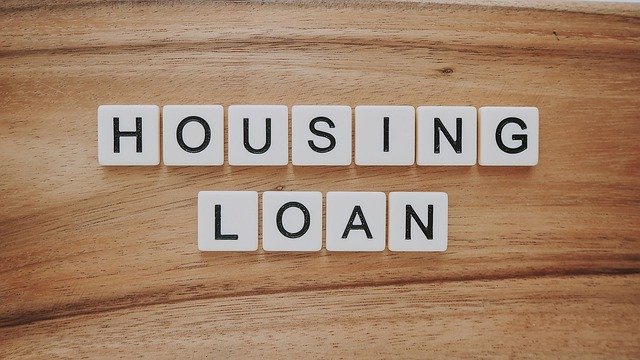Housing Assistance Programs Available for Single Mothers: What to Consider
Stable housing is a key part of long-term security for many families, and understanding how various programs are structured can help reveal new possibilities. This article overviews how different government- and organization-backed initiatives support eligible single mothers—from voucher-based rental support to grants assisting with purchase or repair. While program specifics vary, many explore these resources to understand how housing costs might be reduced or managed. Related programs and eligibility factors depend on location, income guidelines, and family size—all outlined in this guide.

Navigating housing costs as a single mother can be overwhelming, but numerous assistance programs exist to help families achieve housing stability. Federal and state programs offer different types of support, from immediate rental assistance to long-term homeownership opportunities, each designed to address specific housing needs and circumstances.
Understanding Section 8 Voucher Programs
The Housing Choice Voucher Program, commonly known as Section 8, provides rental assistance to eligible low-income families. Single mothers can use these vouchers to rent privately-owned housing, with the program covering a portion of monthly rent payments. Participants typically pay 30% of their adjusted monthly income toward rent, while the voucher covers the remaining amount up to a payment standard set by local housing authorities [1].
Eligibility depends on income limits, which vary by area and are updated annually. Most housing authorities maintain waiting lists due to high demand, so early application is essential. The program allows families to choose their housing location, provided the unit meets health and safety standards and the landlord agrees to participate.
Exploring First Time Home Buyer Grant Opportunities
First-time homebuyer grants specifically designed for single mothers can significantly reduce the financial barriers to homeownership. These grants typically do not require repayment and can be used for down payments, closing costs, or home improvements. Many programs define “first-time buyer” as someone who hasn’t owned a home in the past three years.
State and local housing agencies often offer these grants alongside federal programs. Some grants are targeted specifically toward single parents, while others focus on income-qualified buyers. Requirements usually include completing homebuyer education courses and meeting specific income thresholds based on area median income levels.
USDA Rural Housing Loan Benefits
USDA rural housing loans provide zero-down-payment mortgage options for eligible single mothers purchasing homes in designated rural areas. These loans offer competitive interest rates and reduced mortgage insurance costs compared to conventional loans. The program aims to improve housing availability in rural communities while helping families achieve homeownership.
Eligibility requires the property to be located in a USDA-designated rural area and household income to fall within specified limits, typically 115% of the area median income. Single mothers benefit from the program’s flexible credit requirements and the ability to finance closing costs into the loan amount.
HUD Assistance Program Options
HUD assistance programs encompass various housing support services beyond rental vouchers. These include public housing developments, supportive housing for special populations, and homeownership assistance programs. Single mothers may qualify for multiple HUD programs simultaneously, depending on their specific circumstances and local availability [1].
Programs like the Family Self-Sufficiency Program help participants increase their earned income and reduce their dependency on welfare assistance while receiving housing support. HUD also coordinates with local organizations to provide supportive services such as childcare, job training, and financial counseling.
| Program Type | Provider | Typical Benefits | Estimated Costs |
|---|---|---|---|
| Section 8 Voucher | Local Housing Authority | 70% rent coverage | $0 application fee |
| First-Time Buyer Grant | State Housing Agency | $5,000-$15,000 grant | Income verification required |
| USDA Rural Loan | USDA Direct/Guaranteed | 0% down payment | 1% annual fee |
| HUD Public Housing | Housing Authority | Subsidized rent | 30% of income |
Prices, rates, or cost estimates mentioned in this article are based on the latest available information but may change over time. Independent research is advised before making financial decisions.
Application Process and Timeline Considerations
Most housing assistance programs require extensive documentation including income verification, family composition details, and background checks. Single mothers should prepare tax returns, pay stubs, bank statements, and proof of any government benefits received. The application process can take several months, with some programs having waiting periods of one to three years.
Many programs operate on a first-come, first-served basis or use lottery systems when demand exceeds available resources. Maintaining accurate contact information and responding promptly to program communications is crucial for maintaining position on waiting lists. Some programs allow applicants to apply to multiple housing authorities simultaneously to increase their chances of receiving assistance.
Understanding the various housing assistance options available can help single mothers make informed decisions about their family’s housing future. Each program has unique benefits and requirements, making it important to research local availability and eligibility criteria. Working with housing counselors and local agencies can provide additional guidance throughout the application process and help families access the most appropriate assistance for their specific situations.
Sources
- [1] https://www.hud.gov/topics/rental_assistance/phprog




